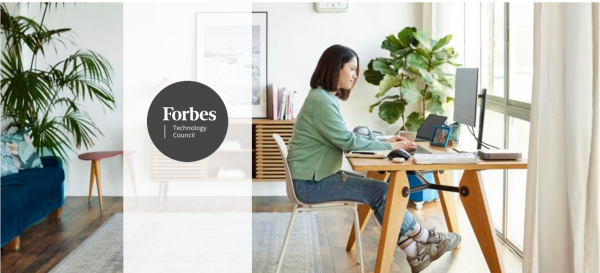
—
Smarten Spaces CEO and Forbes Technology Councilmember Dinesh Malkani is a known student of the future of the workspace, and he has a prognosis: it’s not going back to normal after the pandemic winds down. Malkani recently published an article in Forbes on the future of the work space, and how he is convinced hybrid work spaces are it.“Over the next 24 months, I think things will improve but may not go back to normal pre-pandemic times,” Malkani says. “It’s futile waiting and hoping that things will work out. As the economic recovery gathers speed, my belief is hybrid work models are here to stay, and my advice is to prepare for this reality.”
Every CEO, he says, is faced with the same quandary: make the switch to a hybrid work style, ride out the storm adopting a wait-and-watch approach, or run with what they have and know and hope things will get back to normal soon?
“I’ve spent a lot of time engaging with clients in the U.S., Asia, and Europe, as well as reading and researching this topic extensively,” said Malkani. “Guided by my own business experience, this is how I see the hybrid workplace ecosystem playing out, along with some recommendations.”
Malkani has a number of recommendations for how to operate when adapting to this hybrid future. First and foremost, he says, is to gather a thorough understanding of one’s current employees’ statuses. How many have moved out of range of the office, or are reluctant to return and want to work remotely: only detailed analysis of these considerations, he says, will guide you to the right decisions.
“Remember, the biggest impact is being felt by your employees, and the engagement part is critically important, especially for younger teams and new hires.” Malkani said. “If they don’t understand and buy into the company culture, they’re primed to be poached by another company. You need to approach engagement in a virtual and physical sense.”
This careful evaluation should allow one to schedule their employees’ returns and plan engagement activities. The point, he says, is to stay in regular contact with teams, and deduce what makes them feel empowered and connected. Society is moving toward a more worker-centric mode of work. “Keep listening, motivating and reflecting,” he says, and don’t be afraid to shift according to what you find out. Embracing a work culture your staff actively wants can boost their productivity. After all, “it may be the increase in worker productivity that’s helping to fuel the acceptance of hybrid schedules” in the first place.
But Malkani doesn’t just think it’s about the staff you already have. Considering the displacement caused by the pandemic, there is a talent war about to break out. He suggests leveraging this time to hire from any location and bring in the best talent.
“Unfortunately, the results of a recent survey show that ‘92% of employers do not have a system in place for determining compensation for employees who work remotely only part of the time’ […] companies that don’t embrace the hybrid model could experience significant retention, engagement and talent acquisition challenges.”
While also looking at staffing needs, now is also the time to look at your physical spaces and realign them to work with the new reality. Malkani says they need to be a mix of fixed and flexible spaces that enhance the experience of the work you do. “Employees should be able to go into offices close to where they live and have visibility in the workplace. […] By prioritizing workforce experiences, companies will benefit from the productivity gains that flow from a more included, empowered and engaged workforce.”
Dinesh Malkani founded Smarten Spaces for exactly this reason. Smarten Spaces exists to serve as a solution to the challenges of navigating a hybrid workplace, be it scheduling seats, maintaining work culture, or using space effectively. It’s important to provide the right tools for employees to make good choices on where to work, and Smarten Spaces offers that flexibility.
“Keeping teams together and having them meet is critical for a collaborative culture to flourish and to maintain and enhance productivity and motivation levels,” he says. But “Ad hoc hybrid has its challenges.”
By using solutions that are attenuated specifically to the hybrid experience, one can plan properly to navigate the changes.
“Being a leader means always being ready for change and then effectively managing it when it happens,” he says. “The hybrid, work-from-anywhere workforce is here for the foreseeable future, and employees want employers to adapt and evolve quickly and intelligently. How you leverage this shift to a hybrid work model will be a defining moment for your business.”
Release ID: 89048625

